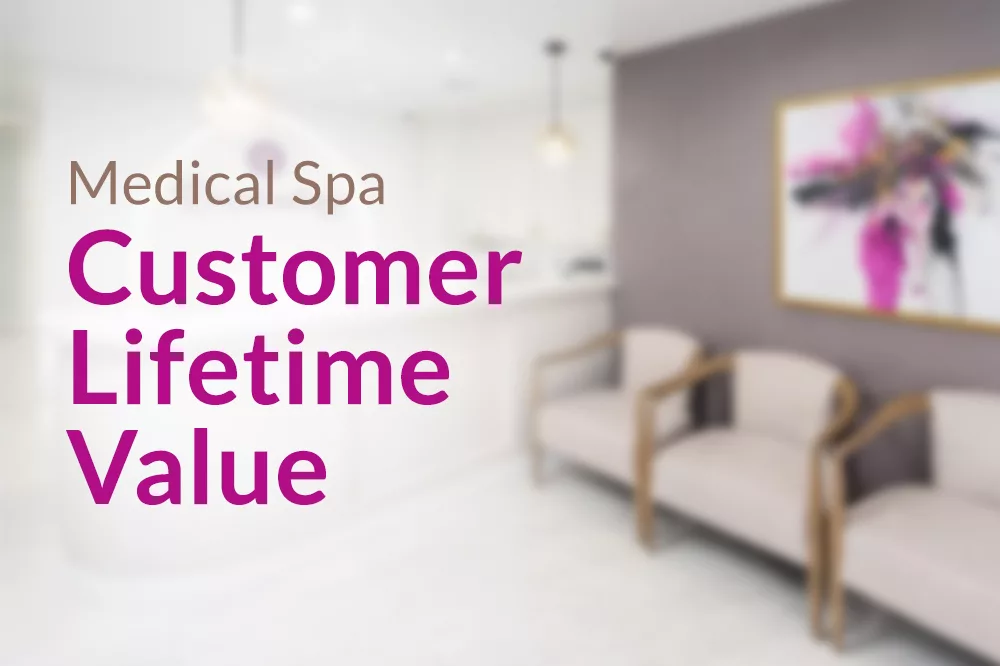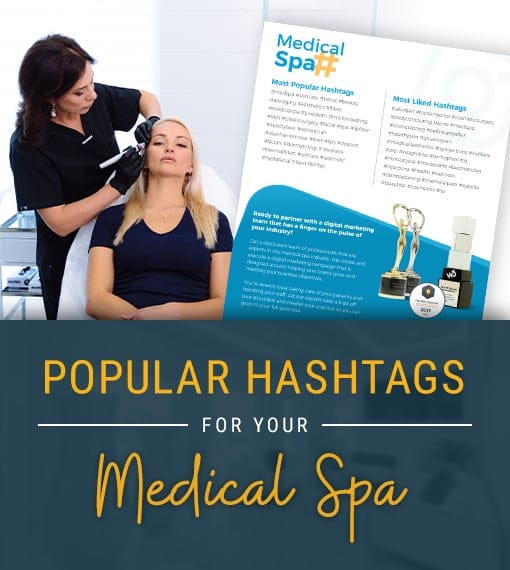If you run a medical spa or an aesthetic center, one thing you need to do is understand Customer Lifetime Value (CLV). By learning about this concept and putting in strategies to boost CLV, you can drive business performance to not only increase your revenue but to get a better understanding of what a “good” or “great” patient is worth.
When you understand your CLV it can help you gauge what your highest-earning treatments and services are and you can decide to focus more of your operating or marketing budget on those particular services.
The most important thing element of understanding your CLV is it gives you another important variable that you can add to your numbers on how you want to run your medical spa. With that in mind, we’re going to explain CLV below to help you get a better understanding so that you can use this effectively at your company.
What is Customer Lifetime Value (CLV)
Let’s begin by explaining what Customer Lifetime Value is. CLV is how much money a client will deliver to your medical spa during their entire time as a paying customer.
In basic terms, CLV is going to tell you how much a client is worth to your business, giving you a full picture into their overall value. From this point, you are going to have a better understanding of the amount of resources and money you should be investing in customer retention going forward.
After all, you do not want to spend a considerable amount of money on a client that is not going to bring a lot of value to your business, do you?
With CLV, some medical spa owners may already have a subconscious understanding of it but they never put it into the perspective of their marketing or overall picture.
If I were to ask you which patient is more profitable to you in the long run, a laser hair removal client or one that prefers neuromodulators and fillers, which one is going to be the answer?
That’s easy – the one who prefers the injectables. The reason being is that patient is going to continue returning every 4-6 months to get their Botox, Juvederm, Restylane, etc touched up again.
With medical CLV, you discover the customers that are the most valuable to your business so that you can focus your medical spa marketing and customer relationship building efforts in the right direction. You will ultimately increase your brand margin by focusing on loyal customers and targeting your promotions effectively.
How To Calculate Customer Lifetime Value For Your Medical Spa
Now that you understand what CLV is, we need to figure out how you calculate this all-important figure!

To put this into perspective, let’s take a simple example of a Botox patient coming in for your services.
The equation is as follows: (C x S) x T
C stands for the average number of visits the client makes within a year, for example, three visits.
S stands for the average expenditure the person spends per visit, for example, $300.
Finally, T stands for the lifespan of the patient, i.e. how long the patient will be a customer, for example, three years.
Using the figures presented above, the equation would be as follows:
(3 x $300) x 3.
The outcome here is a CLV of $2,700.
This indicates how much the customer is worth to you over their lifetime association with your medical spa.
As the patient is likely to be with your business over a three-year period, your customer is worth an estimated $900 to your business per year.
Working out this figure is important because it enables you to get a better understanding of whether the customer is worth investing in, and how much you should invest in keeping this customer on-board.
Promoting A Treatment On Purpose With CLV
By understanding CLV, you will be better placed to promote the treatments that your business offers. You will know whether it is worth promoting a specific treatment to your customers or not. For example, if a customer is only worth $1,000 to you, then it is not worth promoting a $2000 treatment to this patient, is it?
Ultimately, Customer Lifetime Value enables you to promote treatments more effectively. This is all about advertising that focuses on the client. This equals to toting the advantages of your treatments, as opposed to the features. Would you prefer an apple that is green? Or, would you prefer a snack that gives you the ability to concentrate on your tasks in the morning and feel healthy throughout the day? There’s a big difference, isn’t there?
When you concentrate on CLV, you are able to promote treatments effectively. You can focus on the benefits they will bring the customers who are likely to invest in them, and that is ultimately what is going to make your business more effective.
Whatever promotion you decide to run, make sure it’s something that will have patients continuing to return like our Botox example above. Since Botox typically wears off after 4-6 months, most patients will return to have a touch up.
This creates sort of a “membership” service without actually calling it a membership service. This is recurring revenue for your medical spa or aesthetic center.
By calculating CLV, it can also help you to boost your client relationships. As you know, weaker client relationships are going to result in fewer repeat sales. You are going to be doomed to a low CLV if you do not have an engaged core of loyal patients for your clinic. You need to understand your customers to boost client retention. If you adapt to your customers’ treatment habits, you will notice that your CLV increases overall.
Using CLV To Define The Maximum Cost For Customer Acquisition
Another reason why calculating CLV is important for any medical practice or aesthetic clinic is because it gives you the ability to determine the maximum cost of customer acquisition.
Once you have worked out CLV, you are able to determine how much you can afford to spend on customer acquisition to make it worthwhile. Everything has a ceiling, and CLV enables you to work this out.
It ensures you do not end up spending too much money on consumer acquisition to the point whereby it is simply not profitable for your business. This is where a lot of companies go wrong today.
They roll out extensive multi-channel marketing campaigns and spend a lot of money yet they don’t figure out the point whereby they are spending too much money and it is hurting their business. CLV enables you to do this.
Most experts recommend a ratio of 3:1 when it comes to CAC, with CAC standing for Customer Acquisition Cost.
Therefore, you should be spending a third of what the customer is going to bring to your business in terms of value.
If the ratio is close, i.e. 1:1, then you’re spending way too much and you’re not going to be driving high-profit levels. You’re essentially spending the same amount on acquisition as customers are bringing you in terms of value, and this is no way to run a profitable business.
So there you have it: an insight into CLV and why it is imperative for medical spa and aesthetic center owners. Calculating this figure will enable you to make better-informed decisions when it comes to marketing and promoting your business effectively.




